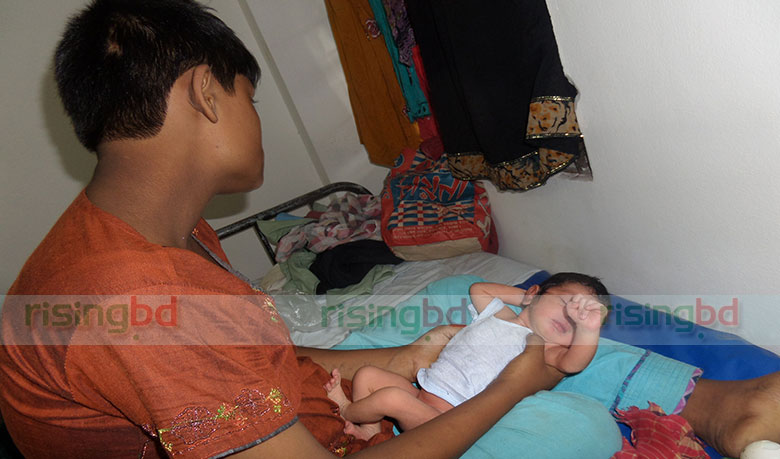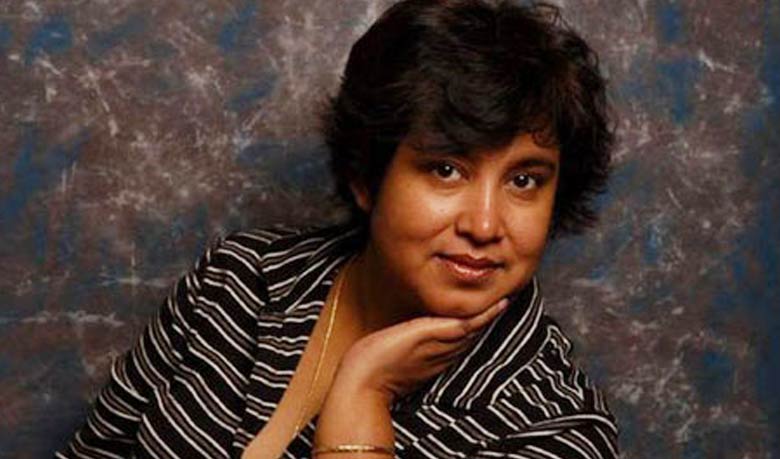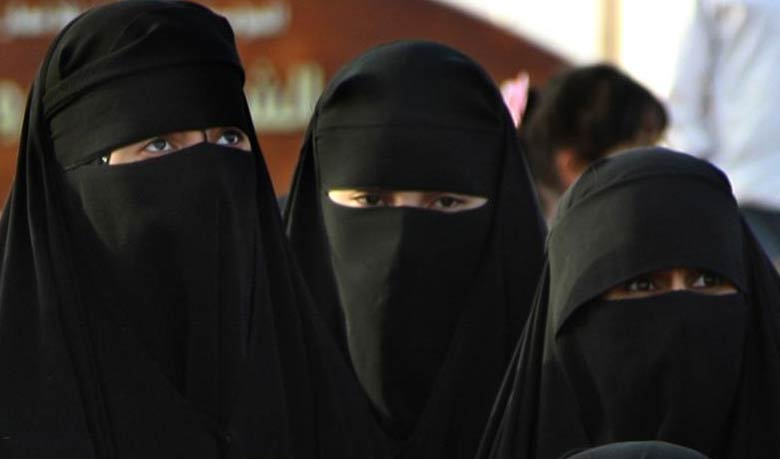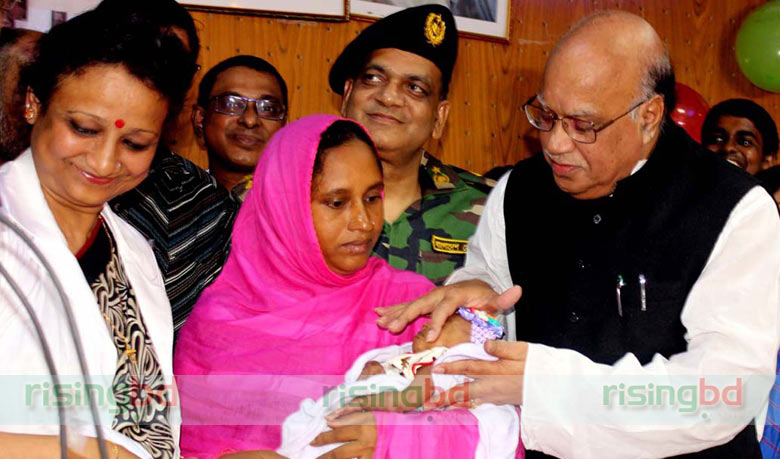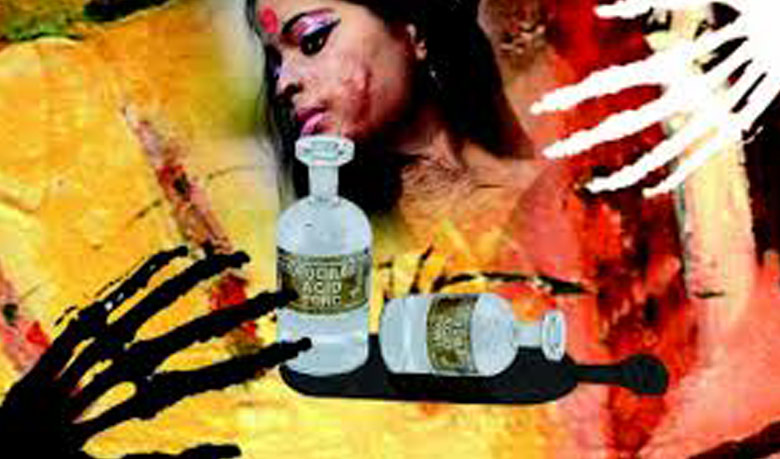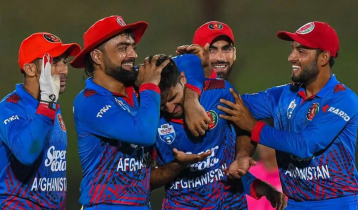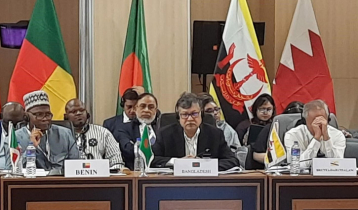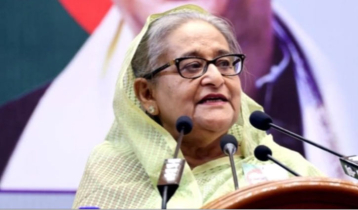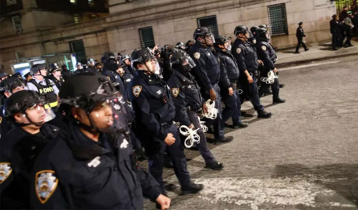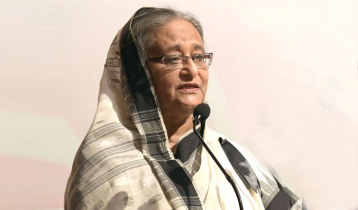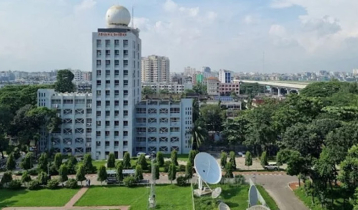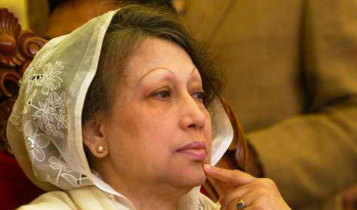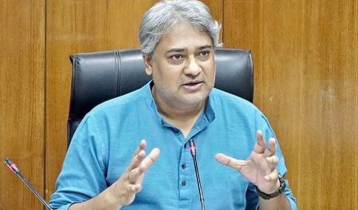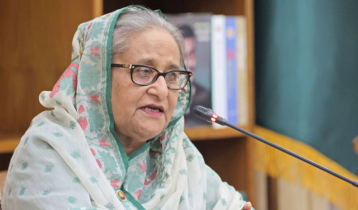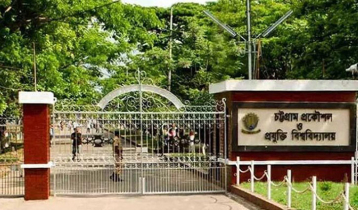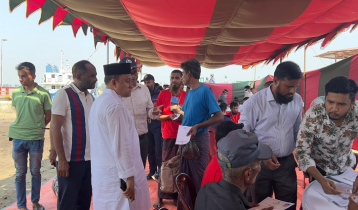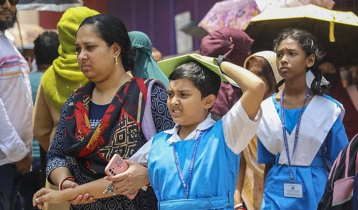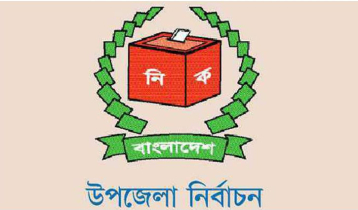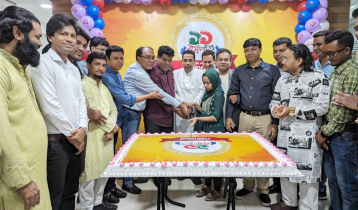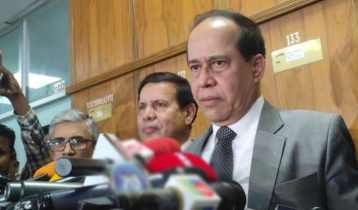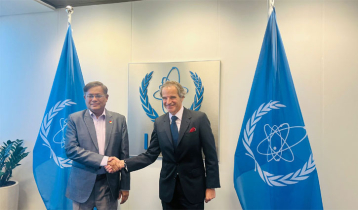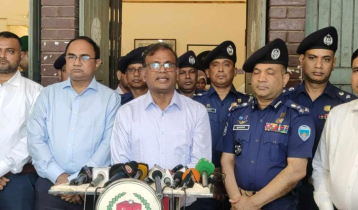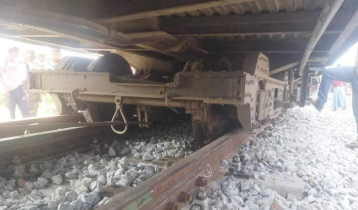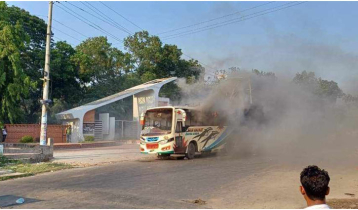Hefazat`s demand: Move to chain women again?
RISINGBD ONLINE REPORT || risingbd.com
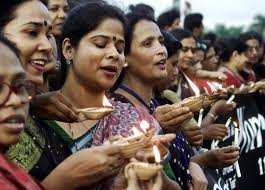
The portrait of the country the people envisioned 42 years ago is fading fast. Villagers are still mired in poverty. It is hard for our youth to concentrate on any ambitious project and carve out a future for themselves. They can’t feel good about their country and are eagerly longing for a change. Women are still a deprived and neglected section in the society.
The two core issues, elimination of social injustice and economic exploitation of the girl child, can only be tackled through motivation, policy guidelines and bold leadership. The genesis of discrimination and cruelty against women can be traced to the social apathy inherent in the male population of the sub-continent. In Bangladesh, though the constitution provides for equality between the sexes with proper protection for women and children, people have been governed by family customs and rules that fail to give women their due.
What is needed now is attainment of economic viability of the nation. But how can this be achieved? Is it possible only with the men folk, leaving aside the women who constitute 50% of the total population? The demand of the Hefajat-e-Islam, asking the government to cancel its women development policy and ban mixing of men and women in public places is a retrograde step. There is widespread feeling that any such attempt to confine women within the four walls of the house may push the country back to the dark ages again.
This is happening in Pakistan where Malala, the 15 year old activist for girls’ educational rights, was shot in October last by the Taliban in that country. It did not end there. A report published in The Daily Star on May 6, quoting The Guardian, says that letters have been circulated in regions of the country warning men not to allow their wives, daughters and sisters to cast vote in the national election due on May 11.
Islam, since the days of Prophet Muhammad (SM), has demonstrated a sense of tolerance and a spirit to learn and engage in business. But appallingly, Islam in most Muslim countries is now being used by some self-styled religious leaders and fanatics not to liberate, but to entrench inequality.
How can extremists and fanatics bring stability in a country already in a messy situation? The need of the hour is stable, committed and sagacious leadership capable of addressing serious problems, both economic and structural, with the strength to stifle the discord and conflict developing in many ways that has bedeviled progress for the past few years. More than ever, we must fight divisive forces that thrive on the cult of violence and fanaticism.
It is a happy augury that after ignoring women for decades, aid organisations and prudent leaders are beginning to recognise women as a key to economic advancement. Women in the rural Bangladesh have to play a dominant role because, as more men leave the countryside for jobs in cities and abroad, they head a third or half of all households. The irony is that we remain passive and mute spectators to the grim sight of women toiling in industrial concerns, most notably in RMG factories and construction yards in the cities and in other people’s fields and farms in the countryside, for a pittance. The result is that in spite of such hard work, they are languishing in squalor, poverty, hunger and malnutrition. And the exploitation continues, taking advantage of their lack of education and ignorance about the world.
It true that development has come about since the government and other agencies started helping women. Village by village, women are gaining tools and confidence they need to provide economic security for their families and make their communities healthier places to live in.
Because of the politicians’ failure to lead the nation and give proper policy directions to people, the country has, of late, been a hotbed of chaos and conflict. Terrorism, killing, drug addiction, trafficking of women, have sickened the people. The energy, imagination, talent and potential of young men and women could not be fruitfully channelised to take the country forward.
The neglect in educating girls is doubly alarming because education leads to a drop in infant mortality and reduces birthrate. With firm commitment and stringent actions towards halting the trafficking of women for forced labour, domestic servitude and sex exploitation, the edifice of a prosperous society could be built. Because, when women are given basic human and labour rights, the whole family and the community benefit. More so, when women gain the knowledge and power to make their own choices, society is better able to break the chains of poverty.
Despite growing consensus on the importance of women’s work, gender disparities and inequality of opportunity persist. Too many women are deprived of proper education, an essential tool to be qualified to take a job for which they would receive proper wages. Scores are still barred from access to loans or credit for exercising the most basic of their legal rights. That means when a male earning member, either husband or father, in a family dies or becomes disabled due to disease or accident, the whole family lands in a sea of calamity and distress.
Women are the most neglected element in Bangladesh society till now. The growing population that now stands at about 160 million did not get the support and direction they needed. The country now bears the brunt of depriving women their right to education.
Torture, violence and humiliation are perpetrated on women even on unproven allegations of moral transgressions or adultery. Some years back Nurjahan, a married woman of Sylhet, accused by a local imam of adultery, was half buried and then stoned. Kada Banu of Rangpur was buried to her waist outside her home and pelted with old shoes for a similar alleged transgression. Many such stories are not reported in the newspapers because of the sense of humiliation and stigma it leaves on the victim and her family.
Democracy is playing a key role by giving women the right to vote and making national interest, not gender, the main determinant of who gets to run governments. Similarly, free enterprise is helping the female cause by making quality, productivity, and profits paramount in business decisions. Women feel that the reserve quota for women parliament members should be done away with in a bid to reward merit as well as to institute in women a sense of competitiveness and equality of status with men, strengthen confidence level, and arouse an urge to acquire knowledge through education and hard work.
In a ruthlessly competitive world, we can’t snub the female half of the world’s talent. And this important message must get to our leaders, especially the radical leaders of the Islamist parties who, out of some mistaken idea and belief, are trying to shackle the women folk in the country. They must realise that without educating men about women, the social barriers would be harder to remove.
risingbd.com

